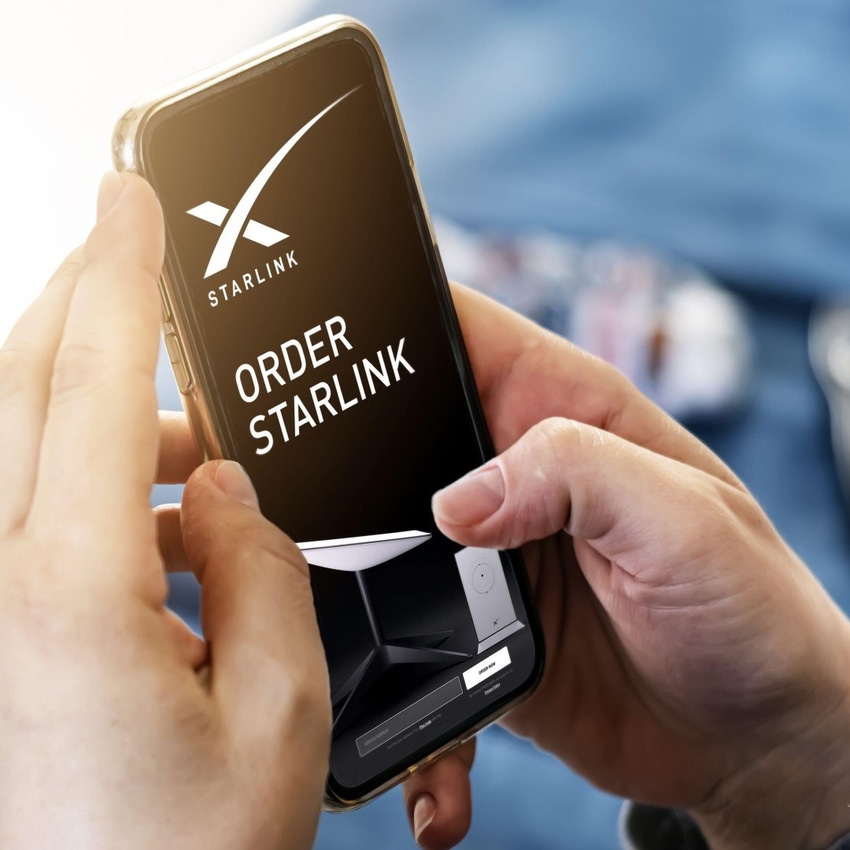Telstra to hedge its satellite bets despite Starlink partnership
Following the announcement of a deal with Starlink, Telstra reportedly intends to maintain a diverse set of partnerships to insure itself against fallout from any unforeseen volatility.

Australian telco Telstra has this week partnered with Starlink to offer its services in remote parts of the country. However, it seems that Telstra has weighed the (perceived) unpredictability of Elon Musk, Starlink's owner and the CEO of its parent firm SpaceX, when deciding to team up with the satellite company – according to comments made by a Telstra executive. Nevertheless, the expected consolidation in the market may also factor in Telstra's reasoning.
The partnership between Telstra and Starlink is said to be the first worldwide to offer voice-only and voice-plus-broadband plans via Starlink's low-Earth orbit (LEO) satellite constellation, and targets customers located in rural and remote parts of Australia.
While Starlink's services have been available in the country since 2021, Telstra will offer the option of professional installation and local help with the setup. The partnership also targets business customers in Australia and in a select few other countries (yet unspecified) with higher bandwidth options. Telstra expects to start providing services based on the Starlink deal later this year, with prices to be made public closer to the (also unspecified) launch date.
The satellite service will be available where distance or terrain make it impossible to offer "quality connectivity" with Telstra's existing terrestrial networks. It will use a modem tweaked by the Australian company to support Starlink. Download speeds, latency and overall experience will be better than via copper-based ADSL – according to a blog post by Telstra's regional Australia executive, Loretta Willaton.
As the Guardian reports, however, the company's group executive for global networks and technologies Nikos Katinakis told journalists during a media briefing that Telstra has pondered the issue of Musk's unpredictability, and seeks to partner with multiple companies to shield itself from any potential disruption.
The UK newspaper cites him as saying: "We are going to have quite a few partnerships to make sure that we cover up for whatever Elon does … If say Starlink pulls out of the market because Elon says 'We hate you Australians,' we are going to go through a period of changes."
In recent months, Musk has continued to make headlines for his erratic management of Twitter, following his somewhat reluctant acquisition of the social media platform. Issues such as arguably chaotic mass layoffs and retweets of misleading claims followed, damaging Musk's public image in the eyes of many and causing headaches for shareholders of Tesla, another Musk-owned company whose stock tanked last year in the aftermath of the Twitter takeover.
Consolidation written in the stars
Starlink has not been entirely shielded from Musk's unpredictable communication style, either. Last October, he suggested in a tweet that the company could not keep providing coverage for free in Ukraine, where it has played a key role in restoring vital infrastructure, only to U-turn a day later, also via Twitter. Eventually, it secured a US government contract for its services in the war-stricken country.
Nevertheless, Katinakis also spoke of the state of the satellite industry in general, noting that it is still in its early stages and probably faces a wave of consolidation and bankruptcies. If that is the case, it could make even more sense for Telstra to seek multiple partnerships.
His statements echo comments made by others in the industry, with Access Partnership, for example, claiming the industry will eventually consolidate into a handful of small players. Earlier this year, Peter Kibutu, TTP's advanced technology lead for non-terrestrial networks, told Light Reading that consolidation was necessary and would likely be triggered by 3GPP standardization. There are some signs that this consolidation is already starting as companies hunt for cash.
Indeed, this is not Telstra's first satellite partnership, with the company backing a mix of LEO, medium-Earth orbit (MEO) and geostationary orbit (GEO) satellite constellations. As part of its T25 strategy, which seeks to improve coverage across Australia, it teamed up with OneWeb in March 2022 to leverage its LEO satellites. It has also agreed to build ground infrastructure ahead of Viasat's launch of the ViaSat-3 geostationary orbit (GEO) constellation.
Telstra's T25 strategy also looks beyond satellite, for example through a partnership with NBN Fixed Wireless.
Related posts:
— Tereza Krásová, Associate Editor, Light Reading
About the Author(s)
You May Also Like












